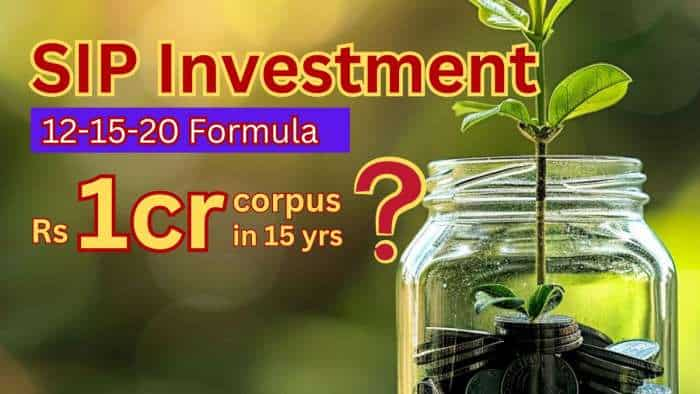EPFO: Will your Provident Fund (PF) savings be sufficient for retirement?
Employees’ Provident Fund (EPF) savings offer a significant corpus after retirement. The EPF amount may not be able to meet your financial needs after retirement as it doesn't account for inflation.
)
Retirement planning requires making optimum savings and investments to build a sufficient corpus for your old age. The Employees’ Provident Fund (EPF) scheme, managed by the Employee’s Provident Fund Organisation (EPFO), helps salaried employees in the private sector to build a retirement corpus.
While Provident Fund (PF) savings could be a great asset to support you after retirement, the money acquired may not be enough to sail through all the non-working years of your life.
How is EPF significant for retirees?
All salaried individuals make a contribution of 12 per cent of their basic salary and dearness allowance to their EPF account every month and the employer also makes an equal contribution. However, 8.33 per cent of the employer's contribution is transferred to the Employee Pension Scheme (EPS).
The PF account is a traditional tool for retirement planning and provides a substantial corpus after retirement. Moreover, the contributions, interest earned and lump sum amount after maturity are all tax-free, making it one of the most lucrative options to consider for retirement planning.
Why PF account funds may not be sufficient for retirement?
While the PF account funds offer a sizable corpus, it may not be enough to support you through all your retirement years. The interest earned on a PF account works on a compounded basis and it leaves you with a sizable corpus.
However, it isn't capable of beating inflation and relying on just PF maturity amount for retirement could be a problem due to inflationary pressures. Therefore, investing in stocks or other reliable sources of retirement income is advised to beat inflation.
You may consider following options for your retirement savings:
Equity: Though the equity market is highly volatile it offers potentially higher returns, which could be used to manage shortage in funds caused by inflation. However, it's a risky avenue and seeking expert guidance is necessary.
National Pension System (NPS): Investing in the NPS could get you tax deductions while you're working and after retirement you'll be entitled to fixed monthly payouts. It can be a great addition to the retirement corpus acquired from your PF account.
Senior Citizens' Savings Scheme (SCSS): If you're aged over 60, you can use the last few years before retirement to invest in the SCSS plan. It'll leave you with a significant maturity amount after a 5-year tenure as it offers attractive returns of more than 8 per cent. In addition, it enables you to avail tax benefits while you're still earning.
Mutual Funds: Though the equity market is unpredictable and volatile, you can mitigate the risks to an extent by investing in the domain via mutual funds. These funds are managed by expert fund managers and offer diversification of investments across various sectors in the stock market, which can mitigate risk.
Get Latest Business News, Stock Market Updates and Videos; Check your tax outgo through Income Tax Calculator and save money through our Personal Finance coverage. Check Business Breaking News Live on Zee Business Twitter and Facebook. Subscribe on YouTube.
RECOMMENDED STORIES

Senior Citizen Latest FD Rates: Know what major banks like SBI, PNB, Canara Bank, HDFC Bank, ICICI Bank are providing on fixed deposits

Gratuity Calculator: Rs 38,000 as last-drawn basic salary, 5 years and 5 months of service; what will be gratuity amount?

Retirement Planning: In how many years your Rs 25K monthly SIP investment will grow to Rs 8.8 cr | See calculations

Top 5 Small Cap Mutual Funds with best SIP returns in 1 year: See how Rs 25,000 monthly investment has grown in each scheme

Top 7 SBI Mutual Funds With Best SIP Returns in 1 Year: Rs 25,000 monthly SIP investment in No.1 fund has jumped to Rs 3,58,404

Top 7 Mid Cap Mutual Funds With up to 41% SIP Returns in 5 Years: No 1 fund has converted Rs 15,000 monthly investment into Rs 23,84,990

SBI 5-Year FD vs MIS: Which can offer higher returns on a Rs 2,00,000 investment over 5 years? See calculations
04:26 PM IST










 Hidden charges on SBI ATM cards: Is your money disappearing quietly?
Hidden charges on SBI ATM cards: Is your money disappearing quietly? Latest personal loan interest rates for SBI, PNB, Bank of Baroda, HDFC bank and ICICI bank
Latest personal loan interest rates for SBI, PNB, Bank of Baroda, HDFC bank and ICICI bank 8 post office investment schemes that offer over 7% guaranteed return
8 post office investment schemes that offer over 7% guaranteed return Millennials turning towards new-age investment instrument fractional investing: Report
Millennials turning towards new-age investment instrument fractional investing: Report  Income Tax: How are e-filing and e-payment of taxes different? Know details here
Income Tax: How are e-filing and e-payment of taxes different? Know details here